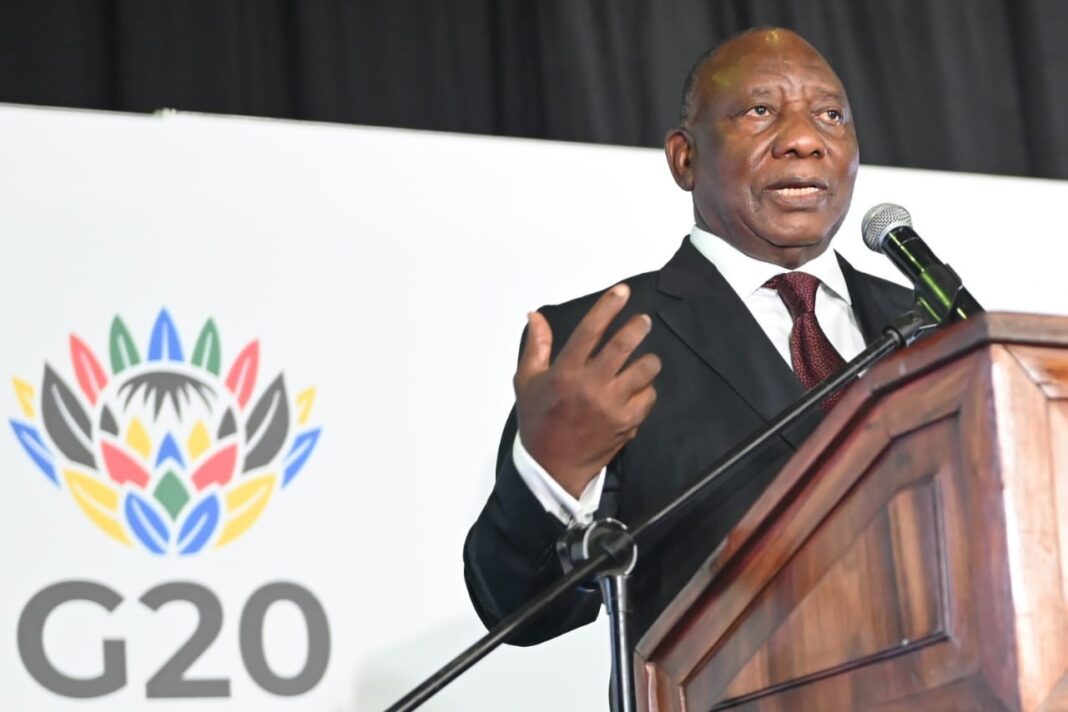By Simon Nare
President Cyril Ramaphosa has downplayed the non-attendance of US senior leaders at the G20 foreign ministers’ meeting, which got underway in Johannesburg on Thursday.
He stressed that their decision should not imply that the meeting was less important or “diluted”.
US Secretary of State Marco Rubio was initially scheduled to attend the first G20 foreign ministers’ meeting, but he did an about-turn on X over South Africa’s Expropriation Act. This was after US President Donald Trump issued an Executive Order to pull funds from South Africa over its new law on land.
Ramaphosa told reporters following the opening of the meeting that he had also been told that US Treasury Secretary Scott Bessent would not attend due to obligations to his country.
The withdrawals come amid tensions between the Trump administration and the South African government. Trump has also threatened not to attend the G20 Summit in November.
Ramaphosa said the two senior leaders’ non-attendance was not a “train smash” and should not be viewed as the US boycotting the meeting, as an official from that country was present. Also, the US would participate in a number of discussions.
“We accept that. It’s their freedom to choose. I sometimes don’t attend the summit, but we often make sure that South Africa is represented. In the end those who are able to come we will come then with warm arms,” he said.
He added that the important thing was that senior leaders in the G20 family were able to meet, discuss important issues and that a declaration would be signed.
The president stressed that the gathering was imperative as it brought together key economies in the world.
“This is not a boycott. This can be ascribed to a whole number of reasons which they have stated, which we note. We have resolved that we will in the diplomatic closet (sic) have those matters discussed, to have those matters dealt with so that we are able to iron out wrinkles that may have appeared in our relationship.
“So, they being an important player in our economy and we are also… an important player in their economy because many companies from South Africa… invest there, and we may be [a] small little player, but we do sell stuff to them that they find very important. So, in many ways we are… perhaps joined to the hip,” he said.
The president said South Africa remained committed to a relationship with the US and would find ways to ensure that the two countries related to each other even if the circumstances appeared to be difficult.
Ramaphosa avoided a question on if he had personally tried to contact Trump outside diplomatic channels, saying the two administrations enjoyed a good communication relationship.
On the Democratic Republic of Congo conflict, the president said the East African Community and South African Development Community held a fruitful summit and its resolutions were endorsed by the African Union.
He said engagements were continuing and military leaders would soon hold talks to lay down the basis for a ceasefire.
Again, Ramaphosa did not want to divulge whether he and Rwandan President Paul Kagame had ironed out their differences following a public spat.
He said that he preferred for these matters not be discussed on public platforms, but rather through diplomatic channels.
On the postponement of the Budget, Ramaphosa reiterated that this would give the Government of National Unity an opportunity to debate contentious issues.
The president said the GNU would draw lessons from the postponement as no party in the current system could impose its demands on coalition partners.
He said there were developed countries who had delayed their budgets and at times this had led to a collapse of a government.
In the case of South Africa, there was no fallout in the GNU. Political parties would go back to the drawing board and find each other.
The G20 countries represent around 85% of global GDP and three quarters of trade.
The US is set to take over the G20 presidency next year.
INSIDE POLITICS

